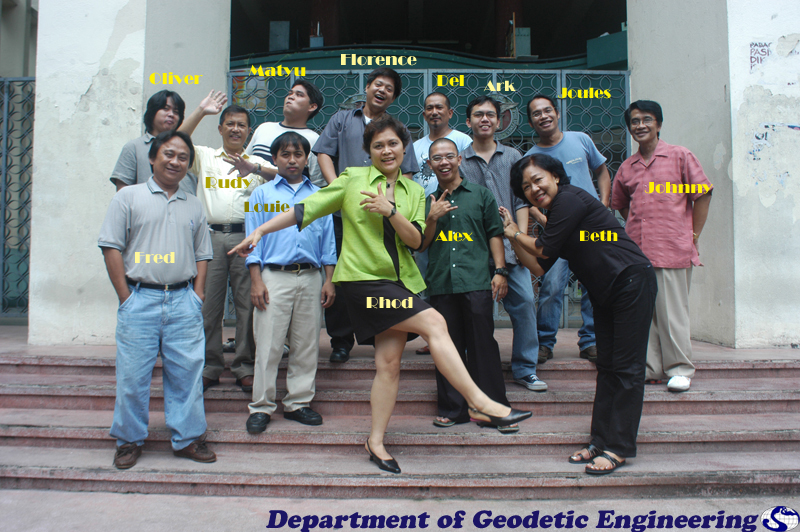Training Center for Applied Geodesy and Photogrammetry: Difference between revisions
No edit summary |
No edit summary |
||
| Line 1: | Line 1: | ||
'''Vision'''<br /> | |||
Vision<br /> | |||
To become an internationally renowned Center of Excellence in the fields of geomatics and geo-spatial studies | To become an internationally renowned Center of Excellence in the fields of geomatics and geo-spatial studies | ||
Mission<br /> | '''Mission'''<br /> | ||
To participate in the growth and development of the country through active collaboration with the government and industry, in education and training, in research works and relevant studies, and in the conduct of extension services in the fields of geomatics and geospatial information | To participate in the growth and development of the country through active collaboration with the government and industry, in education and training, in research works and relevant studies, and in the conduct of extension services in the fields of geomatics and geospatial information | ||
History of TCAGP <br /> | '''History of TCAGP''' <br /> | ||
An Ad-Hic Committee composed of the representative of the Board of Technical Surveys and Maps, the Land Authority, and the University of the Philippines, was convened in August of 1963 to plan and program the establishment of a Training Center for Applied Geodesy and Photogrammetry in the Philippines under the administration and supervision of the University of the Philippines. A memorandum of agreement, signed on December 18, 1963, by the Governor or the Land Authority and the President of the University of the Philippines, culminated in the establishment of the Training Center on October 7, 1964. | An Ad-Hic Committee composed of the representative of the Board of Technical Surveys and Maps, the Land Authority, and the University of the Philippines, was convened in August of 1963 to plan and program the establishment of a Training Center for Applied Geodesy and Photogrammetry in the Philippines under the administration and supervision of the University of the Philippines. A memorandum of agreement, signed on December 18, 1963, by the Governor or the Land Authority and the President of the University of the Philippines, culminated in the establishment of the Training Center on October 7, 1964. | ||
<br /> | <br /> | ||
The core competencies of the Center include the following:<br /> | The core competencies of the Center include the following:<br /> | ||
• Land and Engineering Surveys | • Land and Engineering Surveys<br /> | ||
• Geomatics Research, Education and Training | • Geomatics Research, Education and Training<br /> | ||
• Remote Sensing Techniques and Application | • Remote Sensing Techniques and Application<br /> | ||
• Geographic Information System | • Geographic Information System<br /> | ||
• Mapping, Photogrammetry and Image Interpretation | • Mapping, Photogrammetry and Image Interpretation<br /> | ||
[[Image:GE Dept Faculty.jpg]] | [[Image:GE Dept Faculty.jpg]] | ||
Revision as of 13:07, 27 March 2009
Vision
To become an internationally renowned Center of Excellence in the fields of geomatics and geo-spatial studies
Mission
To participate in the growth and development of the country through active collaboration with the government and industry, in education and training, in research works and relevant studies, and in the conduct of extension services in the fields of geomatics and geospatial information
History of TCAGP
An Ad-Hic Committee composed of the representative of the Board of Technical Surveys and Maps, the Land Authority, and the University of the Philippines, was convened in August of 1963 to plan and program the establishment of a Training Center for Applied Geodesy and Photogrammetry in the Philippines under the administration and supervision of the University of the Philippines. A memorandum of agreement, signed on December 18, 1963, by the Governor or the Land Authority and the President of the University of the Philippines, culminated in the establishment of the Training Center on October 7, 1964.
The core competencies of the Center include the following:
• Land and Engineering Surveys
• Geomatics Research, Education and Training
• Remote Sensing Techniques and Application
• Geographic Information System
• Mapping, Photogrammetry and Image Interpretation



